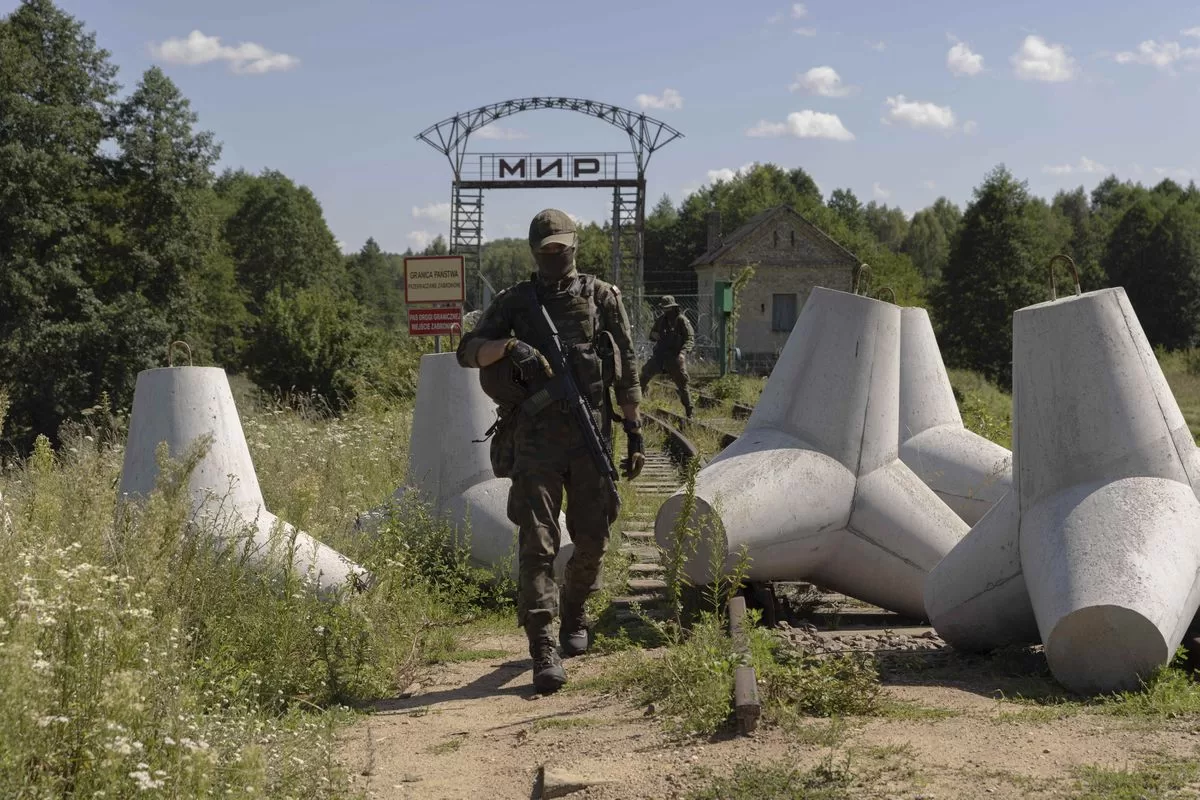The transfer of Wagner mercenaries to Belarus after the failed mutiny against the Kremlin has raised concerns about possible actions by the group in the eastern European Union. Poland and the Baltic countries, key allies of Ukraine, have begun to reinforce their borders – Warsaw has announced the sending of 10,000 soldiers and Latvia and Lithuania are also taking measures – fearing that the paramilitaries will be used to try to destabilize them and participate in a hybrid war like the one that Minsk carried out with the migrant crisis in 2021, when it sent thousands of people to the borders of these countries while the Kremlin prepared its army in parallel for the invasion of Ukraine. For its part, Aleksandr Lukashenko’s regime tries to rely on the Wagner Group against possible incursions by Belarusians fighting alongside kyiv. Entrenched in the crackdown after massive citizen protests in 2020, the president has accepted Russian nuclear weapons in his country, thereby blurring the lines between Belarus and Russia in this war.
Lukashenko acted as a mediator in the crisis unleashed by the Wagner rebellion on June 23 and 24. One of the points of the agreement between the Russian leader, Vladimir Putin, and the head of the group, Yevgeny Prigozhin, was that the mercenary company would move to Belarusian soil and, although it is still facing a reorganization process of which few details are known, their relocation seems to be under way: satellite photographs confirm the construction in said territory of military camps for “the musicians”, the nickname by which Wagner’s paramilitaries are known.
An example is the Tsel base, in the center of the country. The photographs released by the Rochan analysis center revealed up to 40 large containers and 930 trucks and other vehicles in the area on August 3. According to estimates by the Polish authorities, there are between 4,000 and 8,000 Wagner mercenaries on Belarusian soil, the Efe agency reported.
British intelligence published a report this Sunday in which it points out, without offering more information, that the mercenary company is being “reduced in size” to “save on salary expenses at a time of financial pressure.” “There is a real possibility that the Kremlin will no longer finance the group (…) and the second most likely payer is the Belarusian authorities,” the report added before noting that this would imply “a significant drain on the modest Belarusian resources.”
Warsaw views the movements in the neighboring country with concern. One of kyiv’s great supporters in the war, one of the main routes for sending arms to the Ukrainian government also passes through its territory. He is also an “enemy” for Vladimir Putin, who insists without any proof that the Poles intend to annex the western part of Ukraine. The Russian president threatened Poland on July 21 “to take all measures” at his disposal if he attacks his ally Lukashenko in any way. “Unleashing aggression against Belarus would mean unleashing aggression against the Russian Federation,” he stressed.
Minsk is also playing destabilization with hidden threats both from the Government and from its propaganda channels. Lukashenko told Putin at a meeting on July 23 that the mercenaries “want to go on an excursion to Poland”, and Belarusian public television has aired targets such as the Rzeszow airfield, from where weapons are flown to Ukraine. “Do you think the saboteurs won’t pass by in small groups and reach that Polish airbase?” pro-government commentator Alexandr Shpakovski asked rhetorically three days later.
Join EL PAÍS to follow all the news and read without limits.
subscribe
That July 23, joint maneuvers began between Wagner’s fighters and Belarusian soldiers. According to Prigozhin, his mission was to make the Minsk army “the second best in the world” before the mercenaries were sent to their future operations in Africa.
NATO spokeswoman Oana Lungescu told the Polish news agency PAP this week that the military deployment is being closely monitored, but that there is no imminent danger: “We do not see a direct or indirect military threat from the Wagner Group.” , he claimed. However, Warsaw denounces having been the target of provocations by Belarus. The latest, the alleged violation of its airspace by two military helicopters on August 1.
In any case, the presence of Wagner’s forces near their borders is a headache for Warsaw and kyiv. The head of the Operational Command of the Polish Armed Forces, Tomasz Piotrowski, and the commander of the Ukrainian Joint Forces, Serhiy Nayev, met on August 7 “to discuss the challenges and threats caused by the deployment of groups of the Wagner Group in Belarus”. Three days later, Polish Defense Minister Mariusz Blaszczak announced the dispatch of up to 10,000 soldiers to reinforce the border guard.
Wagner’s threat has drawn comparisons with the migration crisis sparked by Minsk in the second half of 2021, when thousands of people brought from the Middle East were left to fend for themselves in no man’s land in the hope of crossing into the European Union. For now, the Polish border guard has noticed a large upturn in migrants from Belarus so far this year, 19,000 compared to 16,000 in all of 2022.
The Baltic countries have also begun to take action in this situation. Latvia has tightened its borders since August 11, while Lithuania plans to close two of its six checkpoints with Belarus from Tuesday. Poland, for its part, only maintains one checkpoint open with the neighboring country and its Interior Minister, Mariusz Kaminski, has threatened to completely cut off the passage if any incident with Wagner occurs.
Meanwhile, Lukashenko is interested in having mercenaries, just as he already accepted Russian nuclear weapons. As Artyom Shraibman, an analyst at the Carnegie Center, points out in an analysis of Wagner’s warm reception by Belarus, the latter could respond to the fact that Minsk has taken note of the incursions into Russia of units of Russian dissidents armed by Ukraine. “Fears in Minsk have intensified as the Ukrainian war finally began to spill over onto Russian soil in the form of drone attacks on the capital, assassination attempts (both successful and failed) on Russian propagandists, and shelling in border regions,” says Shraibman.
“For Lukashenko, unlike Putin, the risks of armed sabotage on his territory carry the clear threat of regime change,” adds the expert, although he stresses that this is an exaggerated fear because units like the Kalinoŭski regiment barely add up to a thousand members.
Follow all the international information on Facebook and Twitteror in our weekly newsletter.
Subscribe to continue reading
Read without limits







